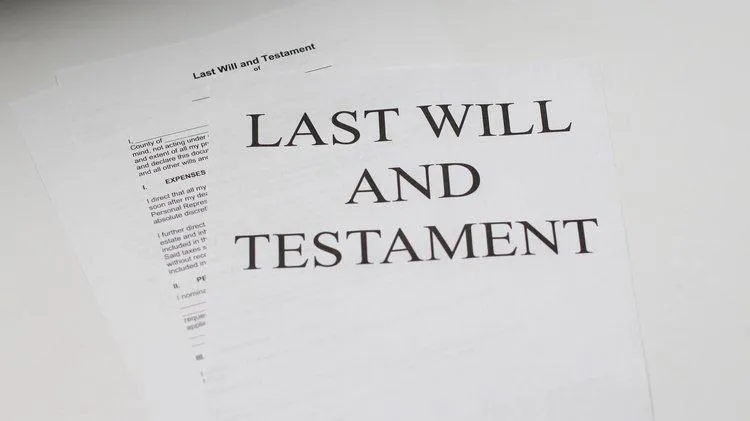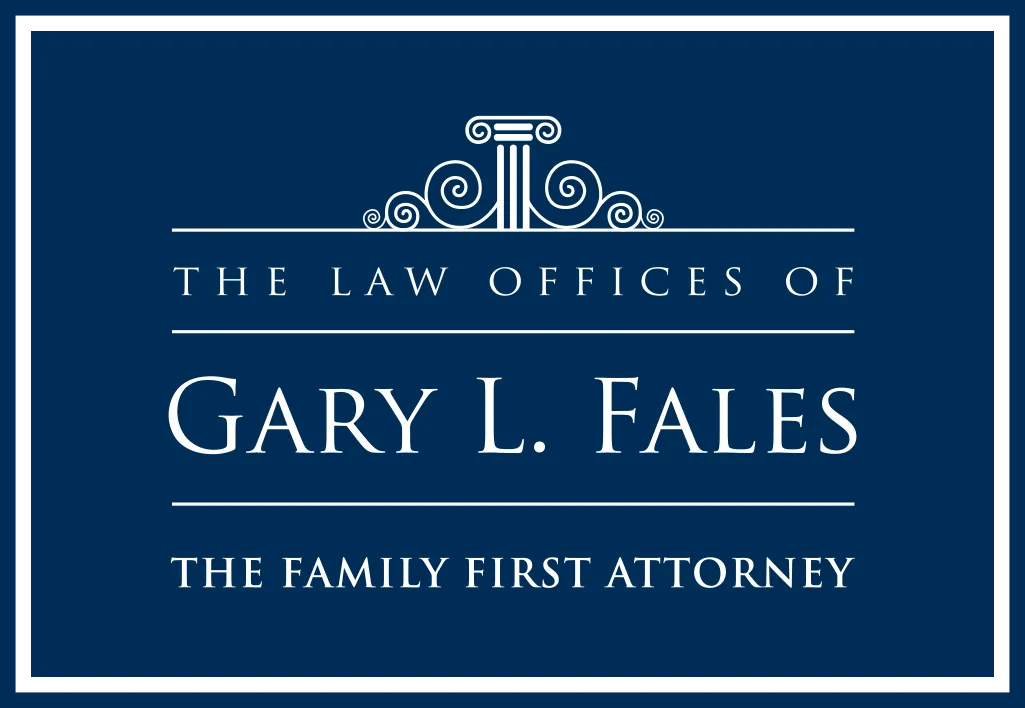How to Stop Gold Diggers
Other Forms of Estate Planning

While we recommend living trusts for most people’s circumstances, using a living trust is not the only way to attempt to avoid probate. There are various ways to plan your estate, each with their own pros and cons.
Wills
Any estate plan, including a trust, includes a will. A will is the most fundamental building block of estate planning. Every adult should have a will, not only to determine what will happen to their assets upon death, but also to designate guardians of minor children, designate someone to act as power of attorney, and so much more. You should have a will regardless of what the rest of your estate plan looks like. Check out our
top ten reasons
to get a will!
Payable On Death and Transfer On Death Designations
Most banks allow you to set up bank accounts and brokerage accounts with a POD or TOD designation. (TOD stands for Transfer on Death and POD stands for Payable on Death; institutions will generally use one or the other, but they are the same thing.) By setting up a POD account, you designate a person to become the owner of the account upon your death. The account doesn’t need to go through probate, because upon death the ownership is immediately transferred to the person you designated. You can also create a TOD title which transfers ownership of property (like a house or a car) to a designated person upon death. These deeds are a little bit different than a POD designation, but it’s helpful to think of them as working the same way.

Pay-On-Death Designations are an inexpensive way to transfer money when you die. However, they lack flexibility and they can expose your assets to creditors and others.
Pros: POD and TOD designations are an inexpensive way to transfer money and accounts to beneficiaries when you die. Your heirs will receive ownership of the account quickly and without interference from a probate court.
Cons: There are many potential problems with POD and TOD designations, and most of them boil down to two main issues: (1) flexibility and (2) naked exposure. Because of how creditor’s claims work, it could be difficult for your beneficiary to obtain title insurance for (and therefore sell) your property within 18 months of your death. PODs or TODs can lead to legal battles between your beneficiaries, especially if you are incapacitated and your designated power of attorney receives control of your assets before your death. Furthermore, if property is passed this way from spouse to spouse or from parent to child, it is subject to an estate tax that is not present if it is inside a living trust. PODs and TODs cannot protect the inheritance from divorce or lawsuits. Living trusts, by comparison, offer a far greater degree of flexibility as to how your assets are handled and they can ensure that if your beneficiary gets a divorce, the inheritance will not be taken from them.
Real Estate Owned in Joint Tenancy
One method that people sometimes use to avoid probate is to own property in joint title. This is most common between spouses or other couples living together, but parents can also jointly own property with their children. When one owner passes away, the other owner continues to own all the jointly owned assets without any need for probate. The difference between joint ownership and POD or TOD titles is that joint ownership gives both parties their own equal shares of the property, before either one of them has passed away. With transfer-on-death titles, ownership is transferred upon death - the beneficiary does not have any claim on the property until that point.

Real estate that’s owned in joint tenancy is a cheap method of delaying probate and avoiding property transfer tax, but it doesn’t avoid probate; it merely delays it.
Pros: Another cheap method of delaying probate. Plus, it avoids the property transfer tax, and there isn’t an 18-month waiting period after your death where your beneficiary can’t sell the house.
Cons: Joint ownership doesn’t avoid probate; it merely delays it. When the second owner dies, the assets still go to probate. Potentially worse, however, is that the property is vulnerable to creditors from all owners. For example, if you add your child as a joint owner of your home, the house could become subject to your child’s creditors, including for things like child support and alimony. Unlike a transfer-on-death title, your property is vulnerable to those creditors while you are still alive and living in the house! Many of the problems that could arise with POD or TOD titles are also present with joint ownership, like a general lack of flexibility when it comes to contingencies. And finally, the assets continue to be completely exposed to the divorce or creditors of your beneficiaries.
Transferring Your Assets To Your Children Before You Die
Many people simply think that their best option is to transfer their assets to their children before their death, and therefore there will be no need for probate. Their children will take care of them! Put simply, this is a very poor idea.
If you really trust your children enough to give all your assets away, not spend or lose it, and take care of you in your old age, you will still lose a large tax benefit that your children would otherwise receive if you waited until your passing to transfer assets to them. Furthermore, your death could be sudden and unexpected, and if you own any assets upon your death, they could be subject to probate. Additionally, if your child has a divorce or lawsuit, his or her spouse or your child’s creditors might get to take your assets.

As you can see, there are many pitfalls when you plan without a Living Trust. Living Trusts can be simple and powerful tools to protect you, protect your family and to protect your money.
Other Forms of Estate Planning

While we recommend living trusts for most people’s circumstances, using a living trust is not the only way to attempt to avoid probate. There are various ways to plan your estate, each with their own pros and cons.
Wills
Any estate plan, including a trust, includes a will. A will is the most fundamental building block of estate planning. Every adult should have a will, not only to determine what will happen to their assets upon death, but also to designate guardians of minor children, designate someone to act as power of attorney, and so much more. You should have a will regardless of what the rest of your estate plan looks like. Check out our
top ten reasons
to get a will!
Payable On Death and Transfer On Death Designations
Most banks allow you to set up bank accounts and brokerage accounts with a POD or TOD designation. (TOD stands for Transfer on Death and POD stands for Payable on Death; institutions will generally use one or the other, but they are the same thing.) By setting up a POD account, you designate a person to become the owner of the account upon your death. The account doesn’t need to go through probate, because upon death the ownership is immediately transferred to the person you designated. You can also create a TOD title which transfers ownership of property (like a house or a car) to a designated person upon death. These deeds are a little bit different than a POD designation, but it’s helpful to think of them as working the same way.

Pay-On-Death Designations are an inexpensive way to transfer money when you die. However, they lack flexibility and they can expose your assets to creditors and others.
Pros: POD and TOD designations are an inexpensive way to transfer money and accounts to beneficiaries when you die. Your heirs will receive ownership of the account quickly and without interference from a probate court.
Cons: There are many potential problems with POD and TOD designations, and most of them boil down to two main issues: (1) flexibility and (2) naked exposure. Because of how creditor’s claims work, it could be difficult for your beneficiary to obtain title insurance for (and therefore sell) your property within 18 months of your death. PODs or TODs can lead to legal battles between your beneficiaries, especially if you are incapacitated and your designated power of attorney receives control of your assets before your death. Furthermore, if property is passed this way from spouse to spouse or from parent to child, it is subject to an estate tax that is not present if it is inside a living trust. PODs and TODs cannot protect the inheritance from divorce or lawsuits. Living trusts, by comparison, offer a far greater degree of flexibility as to how your assets are handled and they can ensure that if your beneficiary gets a divorce, the inheritance will not be taken from them.
Real Estate Owned in Joint Tenancy
One method that people sometimes use to avoid probate is to own property in joint title. This is most common between spouses or other couples living together, but parents can also jointly own property with their children. When one owner passes away, the other owner continues to own all the jointly owned assets without any need for probate. The difference between joint ownership and POD or TOD titles is that joint ownership gives both parties their own equal shares of the property, before either one of them has passed away. With transfer-on-death titles, ownership is transferred upon death - the beneficiary does not have any claim on the property until that point.

Real estate that’s owned in joint tenancy is a cheap method of delaying probate and avoiding property transfer tax, but it doesn’t avoid probate; it merely delays it.
Pros: Another cheap method of delaying probate. Plus, it avoids the property transfer tax, and there isn’t an 18-month waiting period after your death where your beneficiary can’t sell the house.
Cons: Joint ownership doesn’t avoid probate; it merely delays it. When the second owner dies, the assets still go to probate. Potentially worse, however, is that the property is vulnerable to creditors from all owners. For example, if you add your child as a joint owner of your home, the house could become subject to your child’s creditors, including for things like child support and alimony. Unlike a transfer-on-death title, your property is vulnerable to those creditors while you are still alive and living in the house! Many of the problems that could arise with POD or TOD titles are also present with joint ownership, like a general lack of flexibility when it comes to contingencies. And finally, the assets continue to be completely exposed to the divorce or creditors of your beneficiaries.
Transferring Your Assets To Your Children Before You Die
Many people simply think that their best option is to transfer their assets to their children before their death, and therefore there will be no need for probate. Their children will take care of them! Put simply, this is a very poor idea.
If you really trust your children enough to give all your assets away, not spend or lose it, and take care of you in your old age, you will still lose a large tax benefit that your children would otherwise receive if you waited until your passing to transfer assets to them. Furthermore, your death could be sudden and unexpected, and if you own any assets upon your death, they could be subject to probate. Additionally, if your child has a divorce or lawsuit, his or her spouse or your child’s creditors might get to take your assets.



